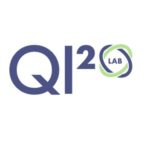
Research Focus
Quantum information science is a research area that investigates quantum systems as natural and fundamental building-blocks for transmitting, storing and processing information. It explores how to exploit quantum properties of light and matter in order to perform tasks of communication, computation and sensing in the most efficient and, sometimes, also completely secure fashion.
However, as quantum mechanics is probabilistic by nature and, moreover, quantum systems are very fragile—being vulnerable to any external noise—advanced statistical inference and signal processing techniques turn out to be essential in order to exploit the full potential of any real-life quantum device. Quantum inference theory studies how to tailor such data inference tools so that quantum properties of systems can not only be accounted for but also extensively benefited from.
Within QI2-lab we primarily work on quantum metrology and sensing tasks. We develop the fundamental theory of quantum estimation protocols in order to focus on their optical implementations, with a particular interest in quantum sensors based on atomic-spin ensembles. We also seek novel practical solutions in quantum information tasks of cryptography and communication, while exploring the applicability of their state-of-art photonic implementations. Last but not least, we work on quantum software—our aim is to create an open-source library that will encompass various “quantum-tailored” data inference tools (such as filtering, compressive sampling or machine learning) so that they can be directly implemented in quantum control and sensing experiments that involve continuous-time measurements.

room: 02.54
email: jan.kolodynski@cent.uw.edu.pl
website: www3.cent.uw.edu.pl/~jankolo/
Research experience:
2018-: Junior Group Leader, Centre for Quantum Optical Technologies (QOT), Warsaw, Poland.
2014-2018: Postdoctoral Researcher, Institute of Photonic Sciences (ICFO), Barcelona, Spain.
2010-2014: Research Assistant, Faculty of Physics, University of Warsaw, Poland.
Education:
2010-2014: PhD in Physics (thesis), Faculty of Physics, University of Warsaw, Poland.
2008-2009: MA Theor. Physics (CASM – Part III Maths), DAMTP, Cambridge, UK.
2007-2008: Part II General in Computer Science, Comp. Labs, Cambridge, UK.
2004-2007: BA in Natural Sciences (Physics), St John’s College, University of Cambridge, UK.
Selected prizes and scholarships:
2018-2020: HOMING programme laureate, Foundation for Polish Science, Poland.
2015-2017: Maria Skłodowska-Curie European Fellowship, ICFO, Spain.
2014-2015: START Scholarship, Foundation for Polish Science, Poland.
2004-2008: Cambridge European Trust Scholarship, Cambridge, UK.
Selected publications:
- Jimenez-Martinez, J. Kolodynski, C. Troullinou, V. Lucivero, J. Kong, M. W. Mitchell, “Signal tracking beyond the time resolution of an atomic sensor by Kalman filtering”, Physical Review Letters 120, 040503 (2018).
- Kolodynski, J. B. Brask, M. Perarnau-Llobet, B. Bylicka, “Adding dynamical generators in quantum master equations”, Phys. Rev. A 97, 062124 (2018).
- Sekatski, M. Skotiniotis, J. Kolodynski, W. Dür, “Quantum metrology with full and fast quantum control”, Quantum 1, 27 (2017).
- Oszmaniec, R. Augusiak, C. Gogolin, J. Kolodynski, A. Acin, M. Lewenstein, “Random bosonic states for robust quantum metrology”, Physical Review X 6, 041044 (2016).
- Smirne, J. Kolodynski, S. F. Huelga, R. Demkowicz-Dobrzanski, “Ultimate Precision Limits for Noisy Frequency Estimation”, Physical Review Letters 116, 120801 (2016).
- B. Brask, R. Chaves, J. Kolodynski, “Improved quantum magnetometry beyond the standard quantum limit”, Physical Review X 5, 031010 (2015).
- Demkowicz-Dobrzanski, J. Kolodynski, M. Guta, “The elusive Heisenberg limit in quantum enhanced metrology”, Nature Communications 3, 1063 (2012).
Selected invited talks:
2018.05 – “Observability and estimation in quantum dynamics” workshop, IHP, Paris, France; titled: “Bayesian filtering for quantum-enhanced atomic sensors” (video).
2017.09 – Quantum Optics IX conference, Gdansk, Poland.
2017.04 – SPIE: Optics+Optoelectronics conference, Prague, Czech Republic. Both titled: “Device-independent quantum key distribution with single-photon sources“.
2017.02 636. WE-Heraeus Seminar “Quantum-Limited Metrology and Sensing”, Bad Honnef, Germany. titled: “Random bosonic states for robust quantum metrology“.
Jan Kołodyński, PhD
Postdoctoral Fellow:
Lewis Clark , PhD
PhD students:
Julia Amoros-Binefa, MSc
Klaudia Dilcher
Marcin Koźbiał, MSc
| Title | Project Leader | Project period | Project funding |
|---|---|---|---|
| Quantum sensors operating in extreme scenarios: novel applications of statistical inference, machine learning and control theory methods | Jan Kołodyński | 2024 - 2029 | SONATA BIS 13, NCN |
| Continuously Monitored Quantum Sensors: Smart Tools and Applications | Jan Kołodyński | 2020 - 2024 | QuantERA I, NCN |
Mathias R. Jørgensen, Jan Kołodyński, Mohammad Mehboudi, Martí Perarnau-Llobet, and Jonatan B. Brask
Phys. Rev. A 105, 042601
Mohammad Mehboudi, Mathias R. Jørgensen, Stella Seah, Jonatan B. Brask, Jan Kołodyński, and Martí Perarnau-Llobet
Phys. Rev. Lett. 128, 130502
Marek Miller, Kang-Da Wu, Manfredi Scalici1, Jan Kołodyński1, Guo-Yong Xiang, Chuan-Feng Li, Guang-Can Guo, Alexander Streltsov
New J. Phys. 24 053022
Yink Loong Len
New J. Phys. 24 033037
Júlia Amorós-Binefa, Jan Kołodyński
New Journal of Physics, Vol. 23, 123030
Clarissa J. Barratt, Sungguen Ryu, Lewis A. Clark, H.-S. Sim, Masaya Kataoka, Clive Emary
Physical Review B, Vol. 104, 035436
Javid Naikoo, Subhashish Banerjee, A. K. Pan, and Sibasish Ghosh
Physical Review A, Vol. 104, 042608
J. O. de Almeida, J. Kołodyński, C. Hirche, M. Lewenstein, and M. Skotiniotis
Physical Review A, Vol. 103, 022406
Máté Farkas, Maria Balanzó-Juandó, Karol Łukanowski, Jan Kołodyński, Antonio Acín
Physical Review Letters, Vol. 127, 050503
| Title | Deadline for applications |
|---|---|
| PhD Student (CeNT-13-2024) | 28/04/2024 |
| PhD Student (CeNT-11-2023) | 07/03/2023 |
| Postdoc (adjunct) in the Quantum Information and Inference (QI2 lab) | 31/07/2021 |
| Postdoc (Adjunct) in the Laboratory of Quantum Information and Inference (QI2) | 07/05/2021 |
| Postdoctoral researcher (adjunct) in the Quantum Information and Inference (QI2) Laboratory | 05/04/2020 |
| PhD student in Centre for Quantum Optical Technologies | 26/11/2018 |
| Student to work in the The Centre for Quantum Optical Technologies | 26/11/2018 |
| Technology Officer – QOT | 22/11/2018 |


